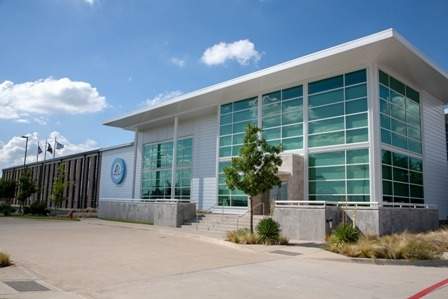Food processing and packaging solutions provider Tetra Pak has collaborated with Koenig & Bauer to provide full-color digital printing on its carton packages.

Image: Tetra Pak’s converting plant in Denton, Texas. Photo: courtesy of Tetra Pak International S.A.
The digital printing technology will enable Tetra Pak to streamline design handling, reduce time from design to print and facilitate product customization.
With the new digital capability, Tetra Pak will offer advanced on-package printing and variety of designs within the same order.
Tetra Pak commercial operations and product management executive vice president Charles Brand said: “We are committed to helping our customers explore new avenues with a truly ‘smart’ package, supporting their need for product customization, smaller batch sizes, greater traceability and the ability to interact with the consumer.
“Our investment in this digital printer demonstrates our commitment to support customers with future-proof technologies as the digital revolution transforms the way we all do business.”
Koenig & Bauer is currently involved in the construction of full-width digital printer, which will be installed at Tetra Pak’s converting plant at Denton of Texas in the US.
In early 2020, the field testing of new digitally-printed carton packages will be carried out with the customers in North America.
Koenig & Bauer board member Christoph Müller said: We are absolutely delighted that Tetra Pak has decided in favour of our digital printer.
Collaboration between our companies is on an extremely constructive and trusting basis. I am sure that, together, we will significantly change the market for the benefit of Tetra Pak customers.”
Last November, Tetra Pak collaborated with global resource management firm Veolia to recycle all components of used beverage cartons collected within the European Union by 2025.
The average beverage carton is said to contain 75% paperboard, 20% plastic and 5% aluminum foil.
The fibers recovered during recycling can be converted into paper pulp for use in both industrial and consumer products, which is not possible with the recovered polymer and aluminum (PolyAl) mix.
As part of the partnership, both the firms will process PolyAl at dedicated facilities and convert into raw materials for applications within the plastic industry.
